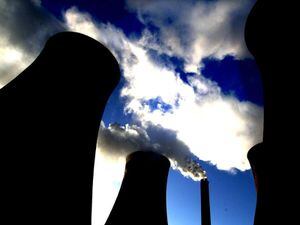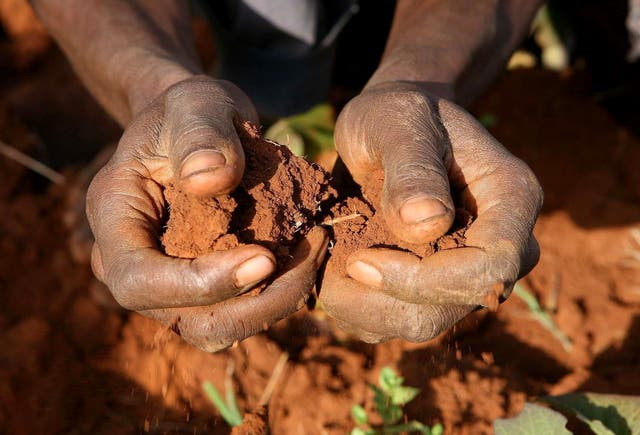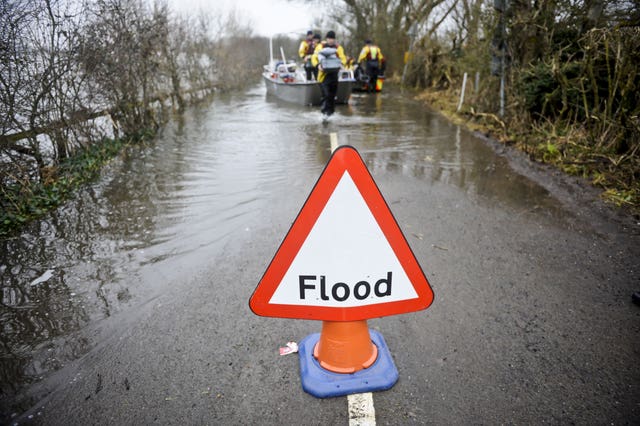The new UN climate report: your questions answered
International review of climate science finds human influence in warming the planet is ‘unequivocal’.

A new UN report has warned it is “unequivocal” that human activity is warming the planet, with the impacts of climate change already being felt around the world.
Here are answers to some of the key questions about the report.
– What is the report?
It is the first part of a global assessment of climate science by the Intergovernmental Panel on Climate Change (IPCC), the sixth such assessment the UN body has conducted, with the most recent one back in 2013/14.
This first part looks at the physical basis of climate change, with further reports on impacts and adapting to global warming, and solutions to the crisis set to be published next year.
– What is the IPCC?
It is the UN body for assessing the science related to climate change. It was established in 1988 to provide political leaders with scientific assessments on climate change, to help them make policy. Some 195 countries are members of the IPCC.
– There always seems to be another climate report coming out. What is different about this one?
The IPCC reports are an assessment of all the available science on climate change.
This latest study references more than 14,000 scientific papers, and has involved 234 authors from around the world, who have received tens of thousands of comments on earlier drafts from scientists and governments.
Most importantly, the 41-page summary of the report has been subject to a line-by-line approval process involving scientists and representatives of the 195 governments before it is published – which has taken place online over the last two weeks.
That means that governments have signed off on the findings.

Although it is just over 40 pages long, there is a lot in the summary report.
It concludes it is “unequivocal” that human activity is warming the planet, causing rapid and widespread changes to land, atmosphere and oceans that are unprecedented for many centuries or even many thousands of years.
It highlights that human-caused climate change, which has pushed up global temperatures by 1.1C, is driving weather and climate extremes in every region across the world.
It also says global warming of 1.5C and 2C – limits countries have committed to in order to avoid the most dangerous impacts of climate change – will be exceeded in the 21st century unless deep reductions in CO2 and other greenhouse gas emissions occur in the coming decades.
– Is there anything new in it?
Each successive assessment by the IPCC has stated the evidence for human-driven climate change more strongly, and this is the strongest yet.
It highlights how the effects of global warming such as weather extremes are already here – and presents the first clear evidence of the links between human influence and more intense heatwaves and rainstorms.
It also highlights the role methane – a relatively short-lived but potent greenhouse gas cased by oil and gas drilling and agriculture – is playing in global warming and the importance of cutting emissions of the gas to rapidly cut curb rising temperatures and also improve air quality.

The report is being released less than 100 days before world leaders gather in Glasgow for a crucial UN climate summit, known as Cop26.
The summit has been billed as the last best chance of keeping global warming to 1.5C above pre-industrial levels, seen as a threshold beyond which the worst impacts of climate change will be felt.
It will ramp up the pressure on governments to provide clear action plans for how they will cut their nation’s emissions in the next decade and beyond in the run-up to the talks, as the world is currently well off track to meet the 1.5C goal.
And while they can ignore the latest findings, they cannot disagree with them – as they have already approved the report.
– What’s the significance of 1.5C?
When the Paris Agreement – the global treaty on climate change – was negotiated in 2015, there was a strong and ultimately successful push by nations such as low-lying islands to include the 1.5C target in the deal because they felt that letting temperatures go any higher would threaten their survival.
As a result countries pledged to keep global temperature rises to well below 2C above pre-industrial levels and pursue efforts to limit warming to 1.5C.
– Will limiting temperature rises to 1.5C really make a difference?
Yes, according to a special report by the IPPC in 2018, which found a 2C rise would lead to more heatwaves, extreme rainstorms, water shortages and drought, greater economic losses and lower crop yields, higher sea levels and greater damage to coral reefs than a 1.5C rise.
The latest report also warns that every additional 0.5C temperature rise leads to clear increases in the intensity of heatwaves, rainstorms and flooding, and droughts in some regions.
– So is it game over if the world warms by more than 1.5C?
No. Scientists involved in the report are clear that the 1.5C or 2C thresholds are not cliff edges that the world will fall off, but that every bit of warming makes a difference, so it is important to curb temperature rises as much as possible.
As Prof Richard Betts, from the Met Office Hadley Centre and a contributing author to the report, puts it: “Like the speed limit on a motorway, staying below it is not perfectly safe and exceeding it does not immediately lead to calamity, but the risks do increase if the limit is passed.
“Limiting warming to 1.5C clearly needs much more urgent emissions cuts than is currently happening, but if the target is still breached we should not assume all is lost and give up – it will still be worth continuing action on emissions reductions to avoid even more warming.”





